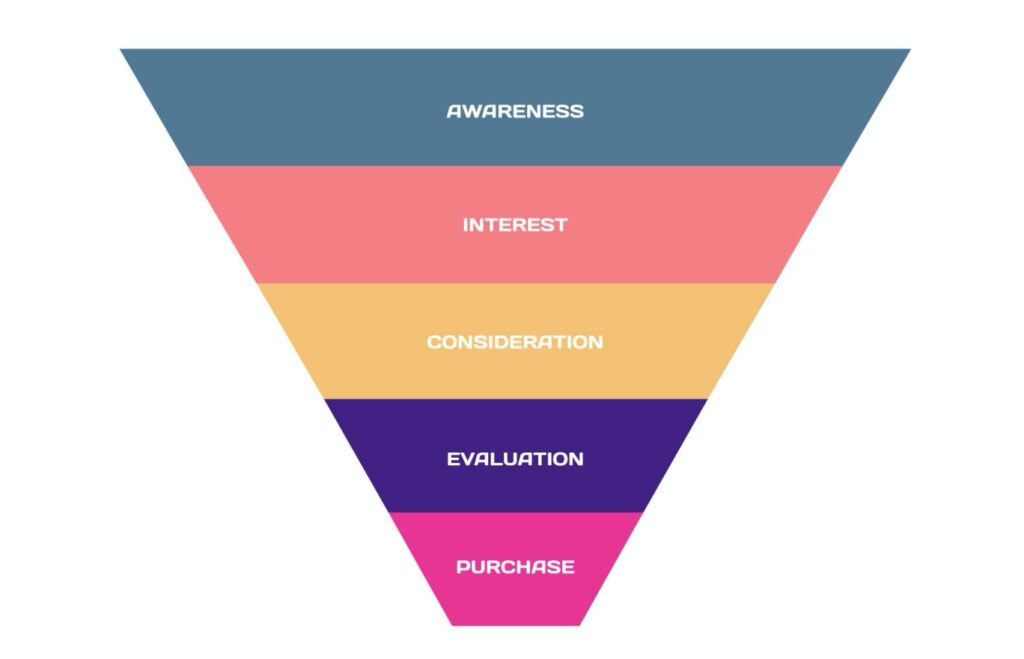Hello!
 In a competitive digital landscape, eCommerce copywriters are expected to have creative writing abilities and technical skills that can help them craft compelling content for online stores.
In a competitive digital landscape, eCommerce copywriters are expected to have creative writing abilities and technical skills that can help them craft compelling content for online stores.
An effective eCommerce copywriter should use the latest tools and techniques to optimize their work.
To deliver exceptional copywriting results, here are 10 essential skills that an eCommerce copywriter needs to master.
What is eCommerce Copywriting?
eCommerce copywriting creates content for online stores and websites designed to engage customers and increase sales. Copywriters must be able to craft persuasive messages that capture customer attention and compel them to buy a product or service. As an eCommerce copywriter, you must possess strong creative writing skills and technical know-how.
The brand voice and tone should be applied to all copywriting, while SEO principles are used to ensure visibility and maximize reach. As the eCommerce business grows, copywriters must continuously adapt their strategies and techniques to keep up with the ever-evolving digital landscape. When search engines change their algorithms, copywriters need to stay informed and ensure they are using the latest terms and trends.
What are the Benefits of eCommerce Copywriting
When it comes to optimizing eCommerce websites, copywriting plays a vital role. Following are some of the benefits of eCommerce copywriting.
Engaging customers
 Copywriters need to create content that engages and resonates with the target audience, helping to create an emotional connection with them.
Copywriters need to create content that engages and resonates with the target audience, helping to create an emotional connection with them.
This is particularly important in the eCommerce setting since customers are looking for a specific product or service and must be convinced that your offering is the best option.
A good copywriter can craft content that does just that, drawing on facts about the product and customer-focused language to create persuasive content. As the eCommerce copywriter jobs become more complex, so do the skills they need to master. Whether writing product descriptions, crafting emails, or creating website content, eCommerce copywriters need to be able to engage customers and make an impact.
Driving conversions
 It’s not enough for eCommerce copywriters to create engaging content; their pieces also need to be designed to drive conversions. That means understanding how best to use language that encourages customers to act, such as adding a product to their cart or making a purchase.
It’s not enough for eCommerce copywriters to create engaging content; their pieces also need to be designed to drive conversions. That means understanding how best to use language that encourages customers to act, such as adding a product to their cart or making a purchase.
An effective copywriter will understand the principles of persuasion and how to apply them in their writing, as well as know the most common customer objections and how to address them.
Additionally, they need to be able to write engaging calls to action that compel customers to take action. Using compelling language and carefully crafted CTAs, eCommerce copywriters can create content that encourages conversions.
Improved brand recognition
Copywriting is a great way to enhance the visibility of your eCommerce website and strengthen the connection between customers and your brand. The right words can effectively communicate the unique value of your products, services, and overall brand.
By conveying this message consistently across all web pages, viewers are more likely to remember it and recognize your company name when presented with it again, thus increasing brand recognition.
 Creating compelling copy that is consistent and relevant to your target audience can also help build trust between the customer and your business.
Creating compelling copy that is consistent and relevant to your target audience can also help build trust between the customer and your business.
When customers are exposed to regular content that resonates with them, they are more likely to be drawn to your products and services. Optimizing your web pages for SEO will make it easier for potential customers to find you online, further increasing brand visibility and recognition.
Enhanced user experience
Copywriting is key to creating a positive and enjoyable experience for your customers. By optimizing the website’s content, you can make it easier for viewers to navigate through the various web pages and find what they are looking for quickly and efficiently. This will help reduce confusion, improve website usability, and make customers more likely to return in the future.
Using copywriting to explain features or product details engagingly helps create an immersive experience that keeps customers on your page longer. Furthermore, including customer reviews on your page can help promote trust between buyers and sellers and build social proof that encourages visitors to purchase from your store.
Using relevant copywriting on your eCommerce site can help create a more enjoyable and engaging user experience for visitors. This can be the difference between success and failure in the online sales space.
Increased ROI
 Copywriting is an excellent way to maximize your return on investment (ROI) in eCommerce.
Copywriting is an excellent way to maximize your return on investment (ROI) in eCommerce.
The right content can capture the attention of potential customers, draw them in, and encourage them to purchase.
You can instantly increase conversions by providing reliable and useful information about your products or services alongside compelling headlines and descriptions.
In addition, copywriting can also be used to optimize pricing strategies. Copywriting can create urgency and motivate customers by showing them limited-time offers or discounts. This helps capture customer attention and encourages them to act quickly to take advantage of these deals.
Increased web traffic
Copywriting is also a great way to increase web traffic. Optimizing and refining the content on your eCommerce site can attract potential customers searching for products or services similar to yours. Through the use of targeted keywords and phrases, copywriters can create content that is both informative and search engine friendly, helping to draw in visitors from various sources.
 The right words make it easier for people to find what they’re looking for and entice them to click through and explore more of your website.
The right words make it easier for people to find what they’re looking for and entice them to click through and explore more of your website.
A well-crafted copywriting strategy ensures that your eCommerce website receives maximum visibility while providing readers with valuable information about your products or services.
This, in turn, helps generate more leads and drive more sales. By carefully crafting content that is both helpful and engaging, you can ensure that potential customers are drawn to your website and eventually convert into paying customers.
10 Skills an eCommerce Copywriter Needs to Master
Now that you know the benefits of eCommerce copywriting let’s look at some of the key skills you need to become an effective copywriter.
1. Research
 Good copywriters are always learning, and research is key to creating content that resonates with readers.
Good copywriters are always learning, and research is key to creating content that resonates with readers.
Researching the target audience, understanding their needs and preferences, and tracking trends in the marketplace are essential for creating an effective copy.
A good eCommerce copywriter will take time to analyze customer buying patterns and gain insight into what drives them to make purchasing decisions.
They should also be familiar with competitor products and pricing strategies to create compelling content that stands out. When an online business is looking to hire an eCommerce copywriter, they should look for someone with strong research skills and a knack for staying up with industry trends.
2. SEO
Another key skill an eCommerce copywriter needs to master is search engine optimization or SEO. An effective eCommerce copywriter should be well-versed in SEO techniques and strategies to ensure the website is indexed correctly by search engines like Google and Bing so that customers can find it easily when searching for relevant products.
Optimizing content for keywords related to the product or service will enable customers to quickly identify if a business’s offering matches their needs or desires. This can help businesses stand out from their competitors as they appear at the top of search engine results pages (SERPs).
Furthermore, SEO also helps improve customer engagement as customers may stay longer on websites that are ranked higher in SERPs due to having more relevant information. Through this, an eCommerce copywriter can draw more potential leads and improve a business’s overall digital presence.
3. Storytelling
 Being able to tell a compelling story is another important skill an eCommerce copywriter needs. Customers are more likely to be engaged with content and products when they can relate to the narrative behind them, so telling a story that resonates with them is key to successful sales.
Being able to tell a compelling story is another important skill an eCommerce copywriter needs. Customers are more likely to be engaged with content and products when they can relate to the narrative behind them, so telling a story that resonates with them is key to successful sales.
An effective eCommerce copywriter should be able to craft unique, informative, and enticing stories that make customers feel like they need the product or service. The story should be tailored to the target audience and their needs, so an eCommerce copywriter must understand who the customer is before writing any content.
Through effective storytelling, an eCommerce copywriter can create an emotional connection between a potential customer and the business’s offering, making them more likely to convert. This also helps build brand loyalty as customers may become repeat buyers through having this strong connection with the business.
4. Conversion-Based Copywriting
E-commerce copywriters should also be aware of conversion-based copywriting. This is the act of crafting content that focuses on the customer’s buying journey and encourages them to convert. An eCommerce copywriter needs to have an understanding of buyer behavior and the factors that influence customers when it comes to making a purchase decision.
 Conversion-based copywriting involves writing persuasive and engaging content that seamlessly guides potential customers down the sales funnel, nudging them closer to completing a sale.
Conversion-based copywriting involves writing persuasive and engaging content that seamlessly guides potential customers down the sales funnel, nudging them closer to completing a sale.
This could include highlighting key features or benefits of a product/service and adding persuasive call-to-action buttons or sections throughout their website content.
Through this copywriting, eCommerce businesses can ensure that their websites are optimized to maximize conversions. It’s also important for copywriters to remember that today’s customers rely heavily on user reviews, so adding in customer testimonials or product ratings can also increase sales.
5. Use Adjectives Sparingly and Verbs Frequently
When it comes to eCommerce copywriting, adjectives should be used sparingly. Adjectives are often overused and can detract from the message that you’re trying to convey. Instead of adjectives, use verbs that accurately describe your product or service.
 This will make your content more engaging and easier to read. Verbs also tend to come with more vivid imagery, which can help customers visualize the product and better understand what it can do for them.
This will make your content more engaging and easier to read. Verbs also tend to come with more vivid imagery, which can help customers visualize the product and better understand what it can do for them.
Using verbs also allows you to use action words and create a sense of urgency that encourages customers to take action now instead of waiting and potentially forgetting about your business in the future.
Overall, eCommerce copywriters should focus on using verbs whenever possible, as they have been proven to be more effective than adjectives in copywriting. When product pages are full of verbs, customers are more likely to take the plunge and make a purchase.
6. Speak Directly to Your Customer
Unlike many forms of writing, eCommerce copywriting requires you to speak directly to the customer. You need to craft copy that engages the reader and communicates your message quickly and efficiently. To do this, you will have to understand your audience, their needs, and how best to convey a call to action that resonates with them.
 A successful eCommerce copywriter understands the importance of speaking directly to customers and tailoring content accordingly. Knowing the customer’s language and providing helpful advice or tips can help create trust between you and your readers, which can ultimately lead to more sales for your business.
A successful eCommerce copywriter understands the importance of speaking directly to customers and tailoring content accordingly. Knowing the customer’s language and providing helpful advice or tips can help create trust between you and your readers, which can ultimately lead to more sales for your business.
Additionally, engaging language helps create excitement around products or services being offered and can help differentiate you from competitors.
Usually, an eCommerce copy should include benefits, features, and compelling stories.
7. Test Your Copy
Before publishing your copy, conducting thorough research and testing is important to ensure the message is clear and resonates with your target audience. Researching key competitors, industry trends, customer needs, and other relevant information can help you develop a powerful eCommerce copy that stands out from the rest.
Additionally, testing your copy through A/B testing can provide valuable insights into which variations of your messages work best. A/B testing involves showing two versions of an ad or website page to different users and tracking how they respond to each variant. This allows you to fine-tune your copy before launching it in full production.
With A/B testing, you can ensure your copy has maximum impact while also improving conversion rates along the way. Ultimately, conducting research and testing will help you deliver an eCommerce copy that more effectively resonates with your customers and leads to increased sales.
8. Strong Understanding of the Marketing Funnel
 An eCommerce copywriter must have a strong understanding of the marketing funnel to effectively craft copy that drives conversions. The marketing funnel visually represents how customers move through the buying cycle, from awareness to conversion.
An eCommerce copywriter must have a strong understanding of the marketing funnel to effectively craft copy that drives conversions. The marketing funnel visually represents how customers move through the buying cycle, from awareness to conversion.
An eCommerce copywriter needs to be aware of each stage of the customer’s journey and craft copy that speaks to each stage. For instance, top-of-the-funnel messages should be designed to attract leads and build brand awareness, while lower-funnel messages should focus on convincing prospects to purchase.
Even if you’re targeting customers already familiar with your brand, crafting copy that speaks to their current needs and moves them closer to a purchase decision is important. The seasonal product copy process usually involves research, creative brainstorming, and testing.
Or for an online store, the copy can be used to showcase collections and create a narrative around products. And when online retailers want to increase engagement, a copy can create a sense of urgency with limited-time offers.
9. Ability to Write for Different Formats
In addition to writing effective copy, an eCommerce copywriter needs to be able to write for different formats. Online shoppers interact with various mediums, such as webpages, blog posts, emails, social media posts, and paid ads. Each of these channels presents a unique challenge and requires a different approach to copywriting.
 For example, emails need to be concise and direct, while social media posts should be more conversational and engaging. Writing for different formats is a critical skill for an eCommerce copywriter because it allows them to create effective messages across each channel.
For example, emails need to be concise and direct, while social media posts should be more conversational and engaging. Writing for different formats is a critical skill for an eCommerce copywriter because it allows them to create effective messages across each channel.
It’s also important for an eCommerce copywriters to understand the platform they’re writing for and tailor their messages accordingly.
For example, if you’re writing a post for Instagram, you’ll need to be aware of its character limit and create short messages that are easily digestible in a mobile environment.
10. Basic Understanding of UX Writing
An eCommerce copywriter should also have a basic understanding of UX writing. This is the practice of crafting clear, concise, and user-friendly copy for websites, apps, and other digital products. UX writing isn’t just about making content look good; it also focuses on creating an overall positive user experience.
Good UX writing makes it easier for users to navigate a website or app and understand how to use its features. For example, if you’re working on an app, you’ll need to create helpful tooltips that explain how each feature works.
An eCommerce copywriter should know how their words affect the overall user experience and ensure they write in a way that encourages customers to explore and interact with the product.
Closing Thoughts About Skills an eCommerce Copywriter Needs to Master
 The eCommerce landscape is always evolving, and as an eCommerce copywriter, you need to stay ahead of the curve.
The eCommerce landscape is always evolving, and as an eCommerce copywriter, you need to stay ahead of the curve.
A successful eCommerce copywriter needs not only a firm grasp of the basics of copywriting but also an understanding of the marketing funnel, the ability to write for different formats, and an understanding of UX writing principles.
With these skills, an eCommerce copywriter can create compelling content that drives conversions.
The key is to be adaptable and willing to experiment with different techniques until you find what works for your target customers. With the right knowledge and skillset, you’ll be able to craft copy that resonates with shoppers, and that’s the key to successful eCommerce copywriting.
Thank you!
Join us on social media!
See you!






